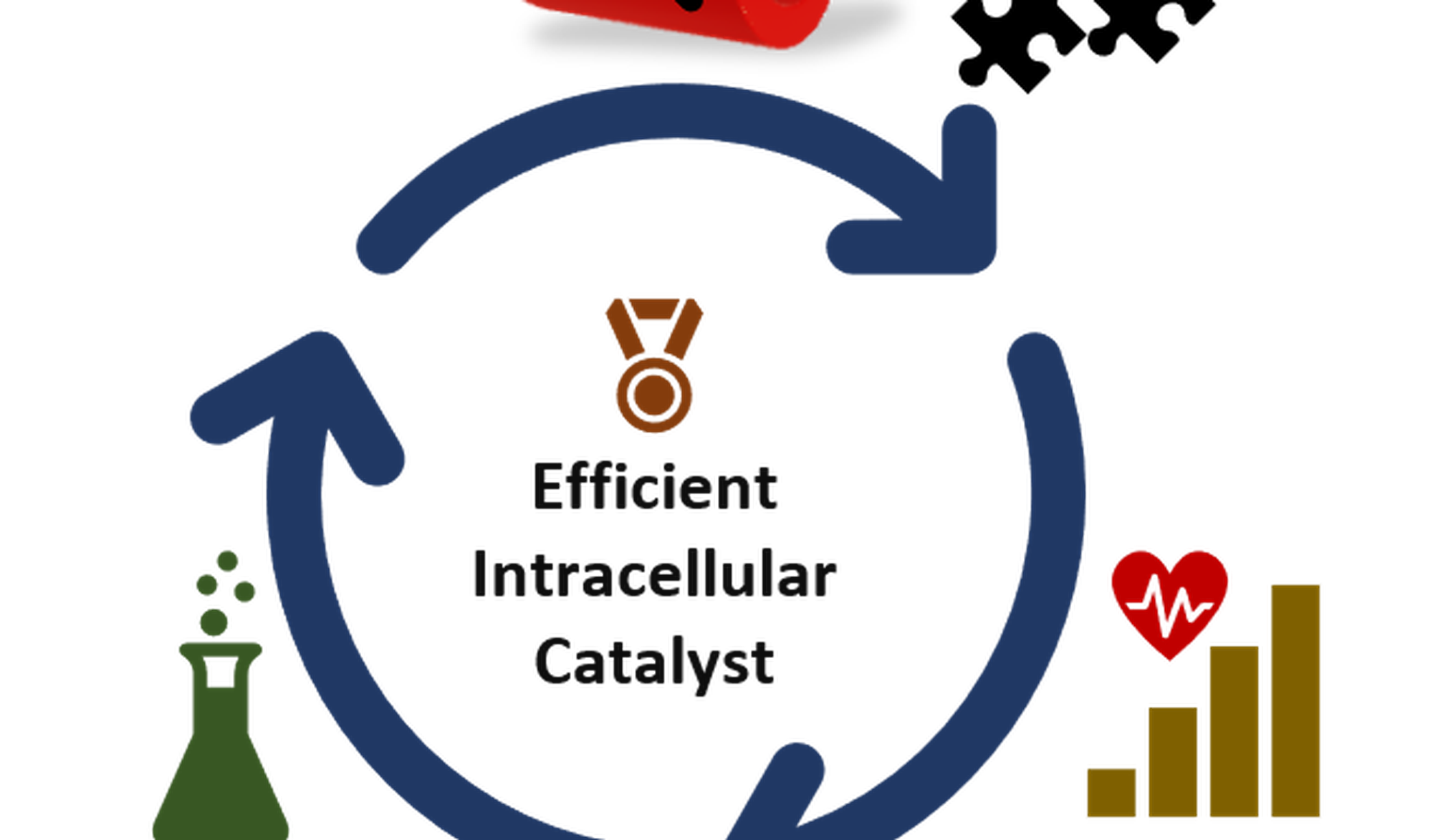Continuous flow methods to improve intracellular catalysts

Internship
Type of Project: Experimental
Location: Donostia
Supervisors:
Carlos Sanchez Cano
Industrial transition metal catalysts can facilitate a great variety of reactions inside cells, including many without a natural counterpart. This might bring a new revolution to the fields of chemical biology and medicinal chemistry, as hypothetically only small doses of such catalysts should be needed to transform large numbers of substrate molecules inside cells with low overall costs.
Still, metallic catalysts normally suffer from processes leading to intracellular degradation, which can cause premature deactivation and decrease in catalytic efficiency, but also unwanted toxicity upon release of non-natural free metal ions. Moreover, such processes have been mostly ignored until now.
A strategy to reduce the toxic effects caused by cellular degradation of metallic catalyst is to use complexes based on biometals present in the organism, as cells could process the metal ions produced once the catalyst is degraded through mechanisms already used to maintain metal homeostasis.
During a summer student, you will synthesise Fe-based catalysts as possible therapeutic agents to intervene over metabolic pathways linked to diabetes and hypercholesterolemia. Then, you will design and perform continuous flow assays to assess and improve their intracellular stability and catalytic efficiency.
After the internship, you would have gained experience in the synthesis and characterisation of organometallic complexes, but also in the use of continuous flow approaches for chemistry and the design and production of laboratory hardware using 3D printing methods.
